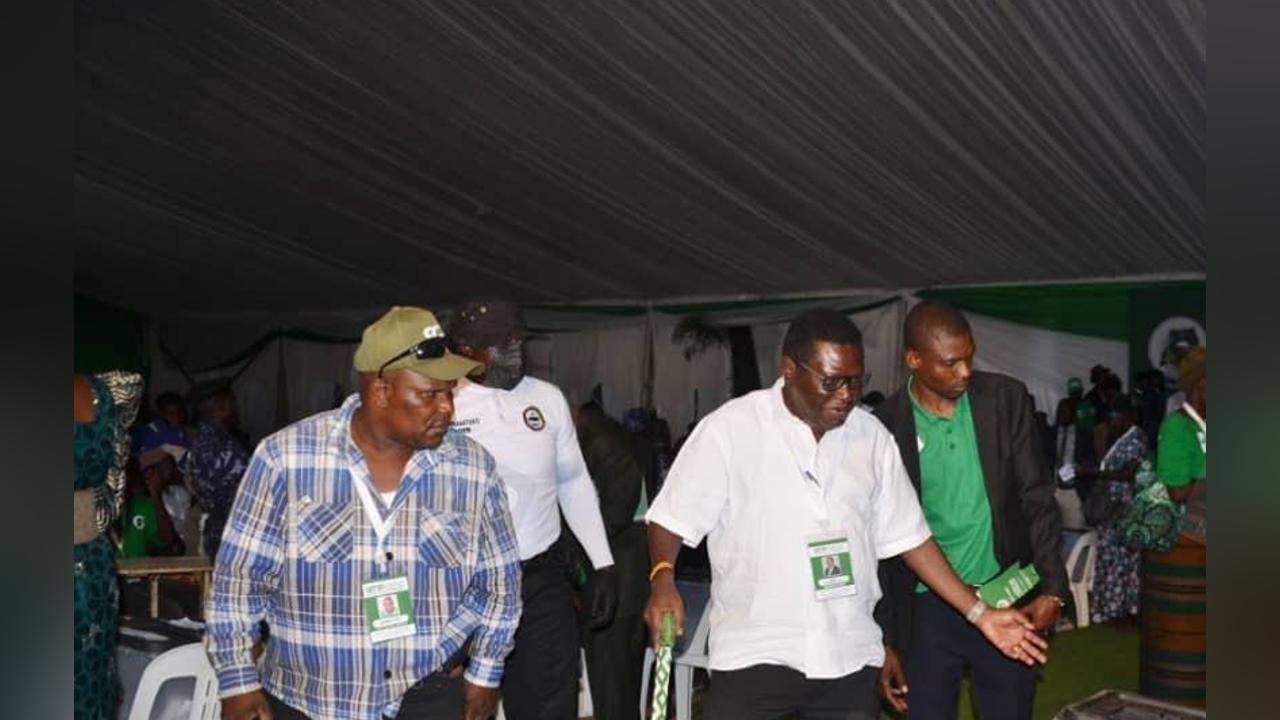Africa-Press – Uganda. At the Democratic Party’s national delegates conference today, the fate of Uganda’s oldest political party lies in the hands of delegates who must choose between continuity and change.
Three candidates, Dr Michael Lulume Bayigga, Alitia Eria, and incumbent president general Norbert Mao, are vying for the party’s top leadership seat in a contest that has reignited long-standing tensions over the DP’s identity, relevance, and future after 70 years in opposition.
The three-day conference, which concludes today, will not only decide the party’s next president general but will also fill other leadership positions.
The outcome is widely seen as a critical moment for a party whose influence has waned significantly in recent years.
One of the early contenders, Bukoto Central MP Richard Sebamala, was dropped from the race during the pre-selection process yesterday, narrowing the field and intensifying the competition among the remaining candidates.
Alitia: “Seventy years has been enough time for us to be in opposition”
Candidate Alitia Eria delivered a passionate final pitch to delegates, calling for unity, revival, and a break from the internal conflicts he says have plagued the DP for decades.
“We’ve been in opposition too long,” said Alitia.
“We have been there because we have been disunited and fighting each other. We have not been working for our party.”
He pledged to focus on fielding strong candidates across the country and emphasised that winning elections must become a priority again.
“A political party cannot win an election if there are no candidates. I want to put DP to power after 70 years,” he said.
Alitia also took aim at the DP’s history of forming alliances with more dominant political players, insisting that the party must reclaim its independence.
“DP should not be begging political powers,” he added.
Bayigga: “Our party is dying at our watch”
Dr Michael Lulume Bayigga, a former Buikwe South MP and longtime DP loyalist, positioned himself as the reformist voice needed to rescue the party from decline.
“We are leading a slippery path. Our party is wailing and dying away at our watch,” Bayigga said in a moving address.
Referencing Sebamala’s earlier removal from the race, Bayigga acknowledged the strong support the MP enjoyed and appealed to his backers for unity under a shared vision of change.
“Those who were supporting Engineer Sebamala, you have a chance to elect a man of change from captivity,” he urged.
Mao defends legacy, warns against arrogance
Incumbent Norbert Mao, who has led the party since 2010, responded to the criticism by advocating for humility and discipline in leadership.
“It’s not about leadership but followership. To be a good leader, you must first be a good follower,” said Mao, appearing to criticise rivals for what he called a “sense of entitlement.”
Drawing from personal experience, Mao recalled his 2005 defeat at the hands of Sebana Kizito at Namboole Stadium and how he chose to support his rival afterward as a sign of party loyalty.
“When I was defeated in Namboole by Sebana Kizito, I humbled myself and became his campaign manager.”
He also made a thinly veiled swipe at the rhetoric of his challengers:
“When you become a president of the party, you either grow or swell. What I have seen here is evidence not of growth but of swelling.”
“As we go to cast our ballots, look at the faces on the ballot paper and ask yourself: Is our party safe with this one?” he added, drawing both applause and murmurs from the audience.
Founded in 1954, the Democratic Party played a significant role in Uganda’s early post-independence politics. But in recent decades, it has struggled with shrinking parliamentary representation, internal wrangles, and criticism over perceived collaboration with the ruling National Resistance Movement (NRM).
This election comes at a time when opposition parties across Uganda face growing pressure to re-strategise and connect with a younger, more politically disillusioned electorate.
Whichever candidate emerges victorious today will take on the monumental task of reviving the party’s electoral presence, restoring grassroots confidence, and redefining the DP’s place in Uganda’s shifting political landscape.
For More News And Analysis About Uganda Follow Africa-Press






